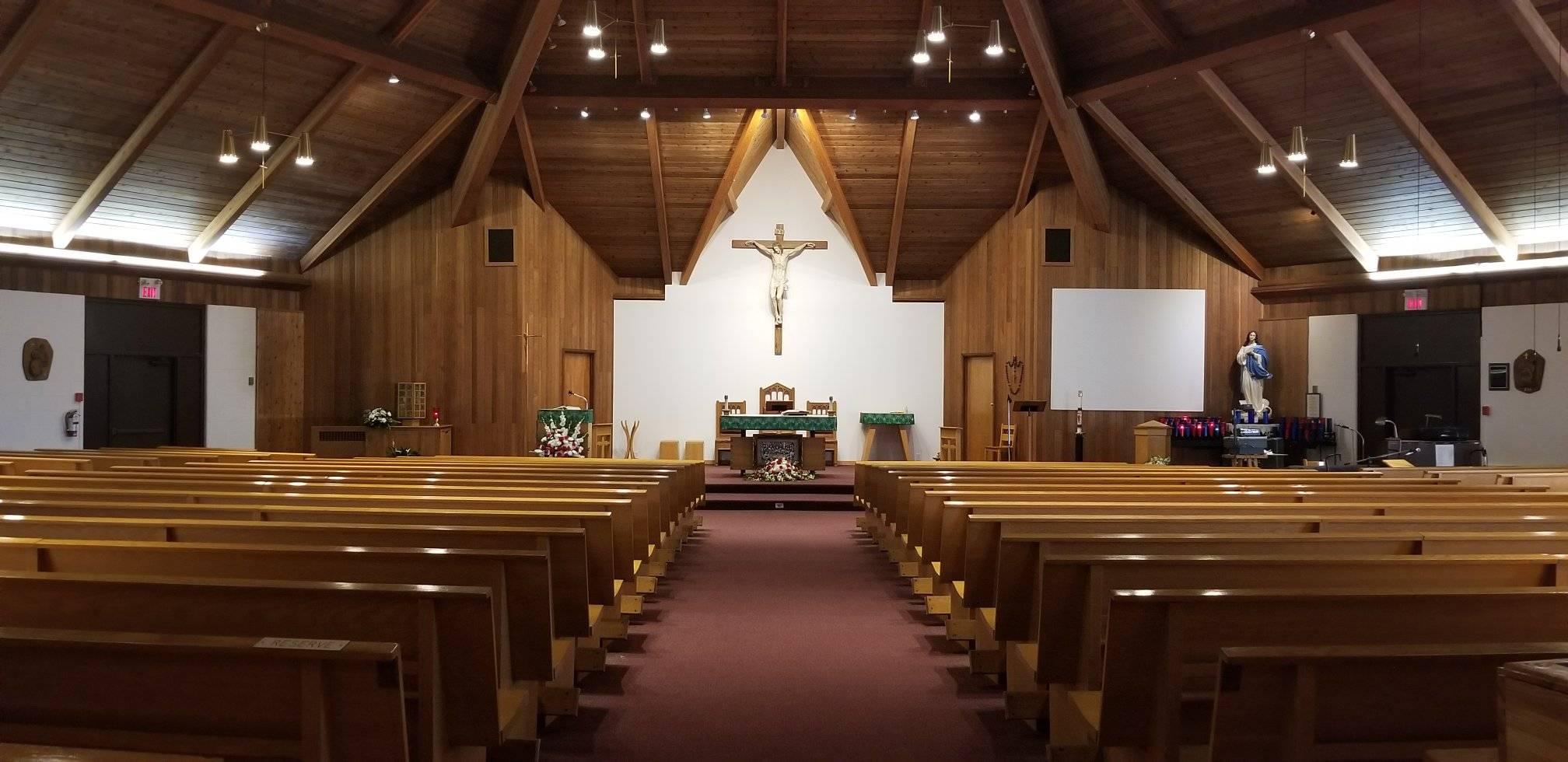
Life’s Challenges Can Lead Us to God
Fr. Wilson Andrade is the pastor of St. Ann Parish and the Native Peoples Mission, both in Toronto.
Once when Leonardo Da Vinci was painting the “Last Supper” he became angry with his assistant. His temper flared as he lashed out with bitter words. Returning to his work he attempted to brush a few delicate lines on the face of Jesus, but he was so troubled that he could not regain his composure in order to continue. He finally left his painting material and went to look for the assistant and asked for his forgiveness. Only after he felt forgiven and he felt right with his conscience could he go back and complete the face of Jesus.
“Lord, to whom can we go? You have the words of eternal life.” The profound expression of St. Peter invites us to reflect on our faith journey and respond to Jesus with our life decisions. Based on this weekend’s Scripture readings, I would like to reflect on these three words: Demands; Discernment; and Decision Making
Demands
Our existence is challenged by the demands of life. But these demands give us opportunities to become the best versions of ourselves by building our character, by growing a healthy personality, by developing better relationships and fostering a mature spirituality. These demands test our faith in our life journey. They test our relationship with God and one another in our personal, our familial and our community life.
After coming to the Promised Land, Joshua invited his family and his community to serve God alone. The people followed him and made the commitment to remain faithful to God. On the other hand, some of the Jesus’s disciples found it difficult to accept His teachings on how to find eternal life, so some of them left Him.
What are the demands of life that we are facing and how are we responding to them? We all come to these crossroads when we are challenged by the demands of life. When we find it hard to continue, we need the courage to accept the challenges of life and make the best use of those moments for our growth.
Pope Francis said: “We can live this life to the fullest – with our feet firmly planted on the ground – and respond courageously to whatever new challenges come our way.”
Discernment
When we are faced with the demands of life, we are called to begin a process of discernment.
Discernment helps us examine our life – with all its possibilities and priorities – enabling us, in good conscience, to make valuable judgements. Discernment helps to reflect with critical thinking, to clarify our commitment with a clearer vision of how to be grounded in life with faith in God.
The conversations between Jesus and His disciples show us moments of discernment, as the disciples determine if they can accept the message and teaching of Jesus. The question Jesus asks the Twelve Apostles is: “Do you also wish to go away?” Can my discernment process be helped by asking this question of my faith and practice? Where do I stand in my relationship with Jesus and others? What are those teachings I find hard to accept in life? What are the changes that God invites me to make that I find difficult to do?
St. John Henry Cardinal Newman said: “To live is to change, and to be perfect is to have changed often.”
Change is difficult, yet, transformation begins with the changes we make in our life that are focused on God. As St. John Paul II said, “Prayer can truly change your life, for it turns your attention away from yourself and directs your mind and heart towards the Lord.”
Let our discernment lead us to God, who fills us with the spirit of life.
Decision Making
The purpose of discernment is decision making. Authentic discernment helps us make the right decisions, moving us in the direction of God’s plan. Joshua while leading the tribes of Israel with consultation and dialogue, speaks of his decision to serve the Lord. In response, all of the people of Israel follow and make the covenantal commitment to serve God alone.
Just as in today’s Gospel, when Peter in responding to Jesus’s questions, saying: “Lord, to whom shall we go? You have the words of Eternal Life.” St. Paul in his Letter to the Ephesians helps us recognize that decision making should rooted in our love for each other, as he says: “be imitators of God, to live in love as Christ loved us.”
Deciding to follow Jesus is shown in the love we express to each other, that is, “being kind to one another, tender-hearted, forgiving one another, as God in Christ forgave us.” St. Paul uses the example of the mutual loving relationship between a husband and a wife to show the sacrificial love Christ has for the Church. We enter into the mystery of Christ’s love, who offers himself for our salvation.
After a deep life quest, St. Augustine confirms in his Confessions that “to fall in love with God is the greatest romance; to seek Jesus the greatest adventure; to find Jesus, the greatest human achievement.” And so he rightly laments: “Late have I loved you, Beauty so ancient and so new, late have I loved you! Our hearts are restless, until they can find rest in you.”
Let us take the example of the saints, the holy men and women who, because they decided to follow Jesus, found fulfillment and eternal life. Let us live in love and serve with joy by following Jesus, Our Lord and Savior.
“Your words, Lord, are spirit and life; you have the words of eternal life.”
This homily is based on the readings from the 21nd Sunday of Ordinary Time, Year B: Joshua 24.1-2a, 15-17, 18b; Ephesians 5.21-32; John 6.60-69.
